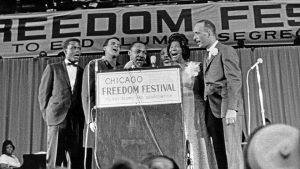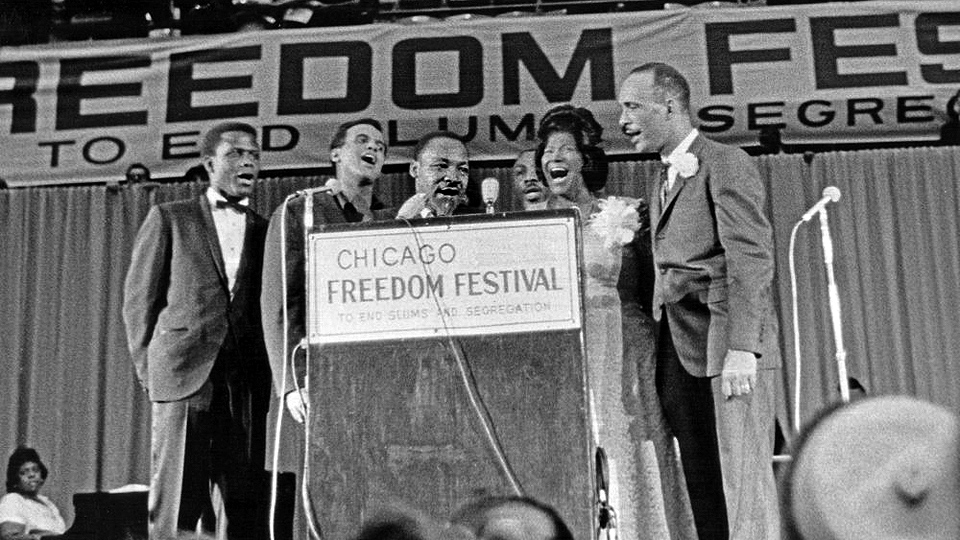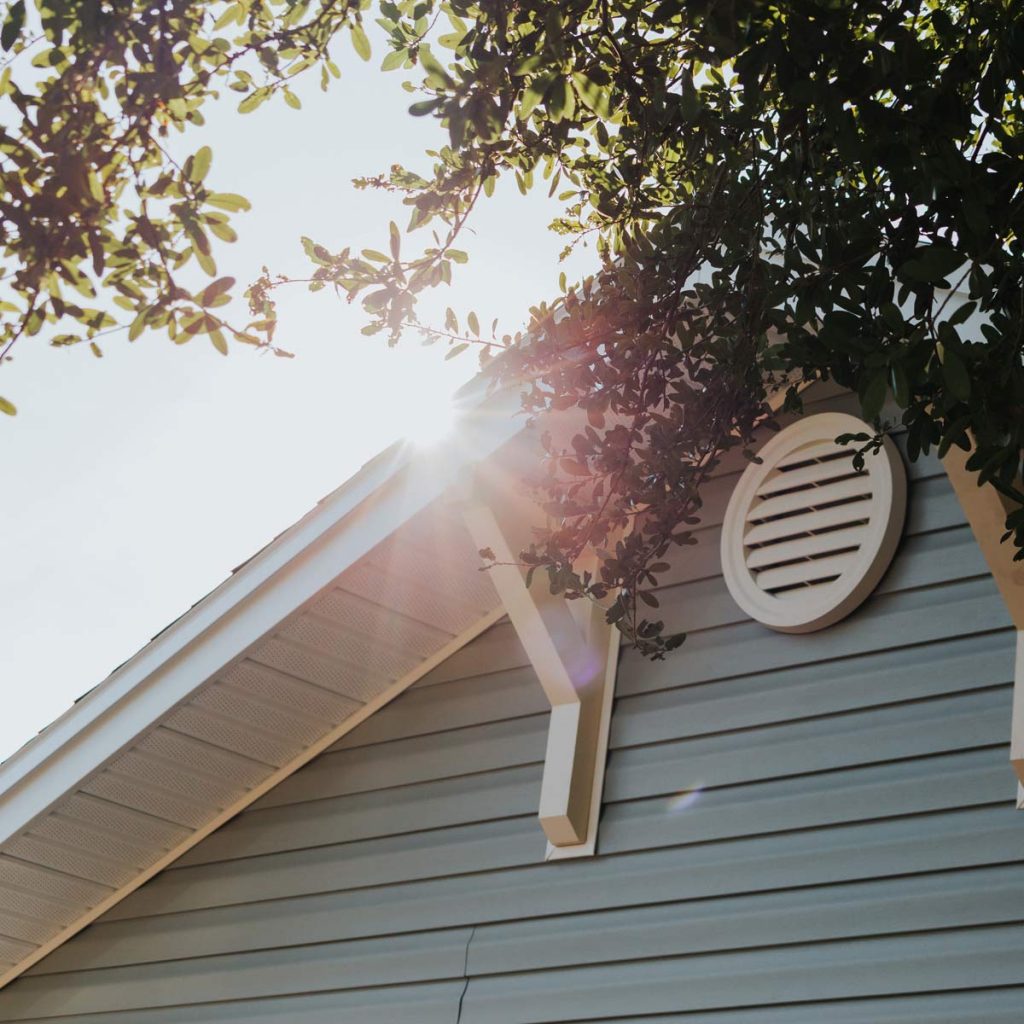
The Chicago Freedom Movement
The 1968 Fair Housing Act grew out of the early 1960s Civil Rights Movement. During this time, African Americans and allies across the country took to the streets, staged sit-ins and protested for equal treatment in all areas of life. Historically, African Americans faced housing discrimination throughout America, whether in the Jim Crow South, the Levittown’s of the Northeast, the slums in Chicago, or the ghettos of the West. Housing discrimination was explicit policy, institutionalized, and socially acceptable. Practices such as redlining, racial covenants, GI bill denials, block busting, segregation and substandard public housing programs were just some of the tools utilized to victimize and marginalize.
One of the first significant movements and subsequent victories against housing discrimination was the Chicago Freedom Movement. The movement was led by Dr. Martin Luther King Jr., James Bevel, Al Raby and a 25-year-old Rev. Jesse Jackson to contest systemic segregation and discrimination in Chicago. Fleeing the Jim Crow laws of the south, many African Americans moved to Chicago during the ‘Great Migration’ post-WWI and the ‘Second Great Migration’ post-WWII to improve their living conditions. However, although not codified in law, African Americans faced discriminatory practices that created slum conditions for tens of thousands. Martin Luther King and the Southern Christian Leadership Conference (SCLC) announced plans for the Chicago Freedom Movement in January 1966, after a successful lobbying effort by activist Al Raby to join their cause in Chicago. King and his family moved into a Chicago slum by the end of January to highlight the conditions and be closer to the movement.
King and other local organizers coordinated nonviolent marches and demonstrations throughout Chicago. The movement sought nondiscriminatory mortgage policies, ready access to owners’ names for all slum properties and programs to rehabilitate public housing and increase the supply of low-cost housing on a scattered basis. On July 10th ,1966 nearly 30,000 people gathered at Soldier Field for Freedom Sunday. During his speech, King proclaimed, “I am still convinced that there is nothing more powerful to dramatize and expose a social evil than the tramp, tramp, tramp of marching feet.” However not all of the marches remained peaceful with various race riots breaking out throughout the city. King noted after a march through an all-white neighborhood in August of 1966 that turned violent, “I have seen many demonstrations in the south but I have never seen anything so hostile and so hateful as I’ve seen here today”. Nonetheless deterred, the movement continued unabated, leading to sustained pressure on City Hall. The Chicago Freedom Movement was not giving up until changes were made to end housing discrimination.
By the late summer of 1966, Chicago Mayor Richard Daley was ready to negotiate an end to the demonstrations. Eventually, a summit was planned, and a subsequent agreement was announced. The Chicago Housing Authority promised to construct public housing with limited height requirements, and the Mortgage Bankers Association agreed to make mortgages available regardless of race. After signing the Chicago Summit Agreement, King stated the agreement was “the most significant program ever conceived to make open housing a reality,” yet he recognized it was only “the first step in a 1,000-mile journey.”
Many believe the Chicago Freedom Movement was a prelude to the Fair Housing Act and helped inspire the legislation. The actions of King and thousands of others led to fundamental changes in the housing conditions for African Americans in Chicago. Yet, this impacted only a few compared to the millions suffering across the country from discriminatory practices.
National change is on the horizon. However, it will take a dark day in American history to catalyze the passage of the 1968 Fair Housing Act.
Read part three of our Fair Housing Act blog series here.




